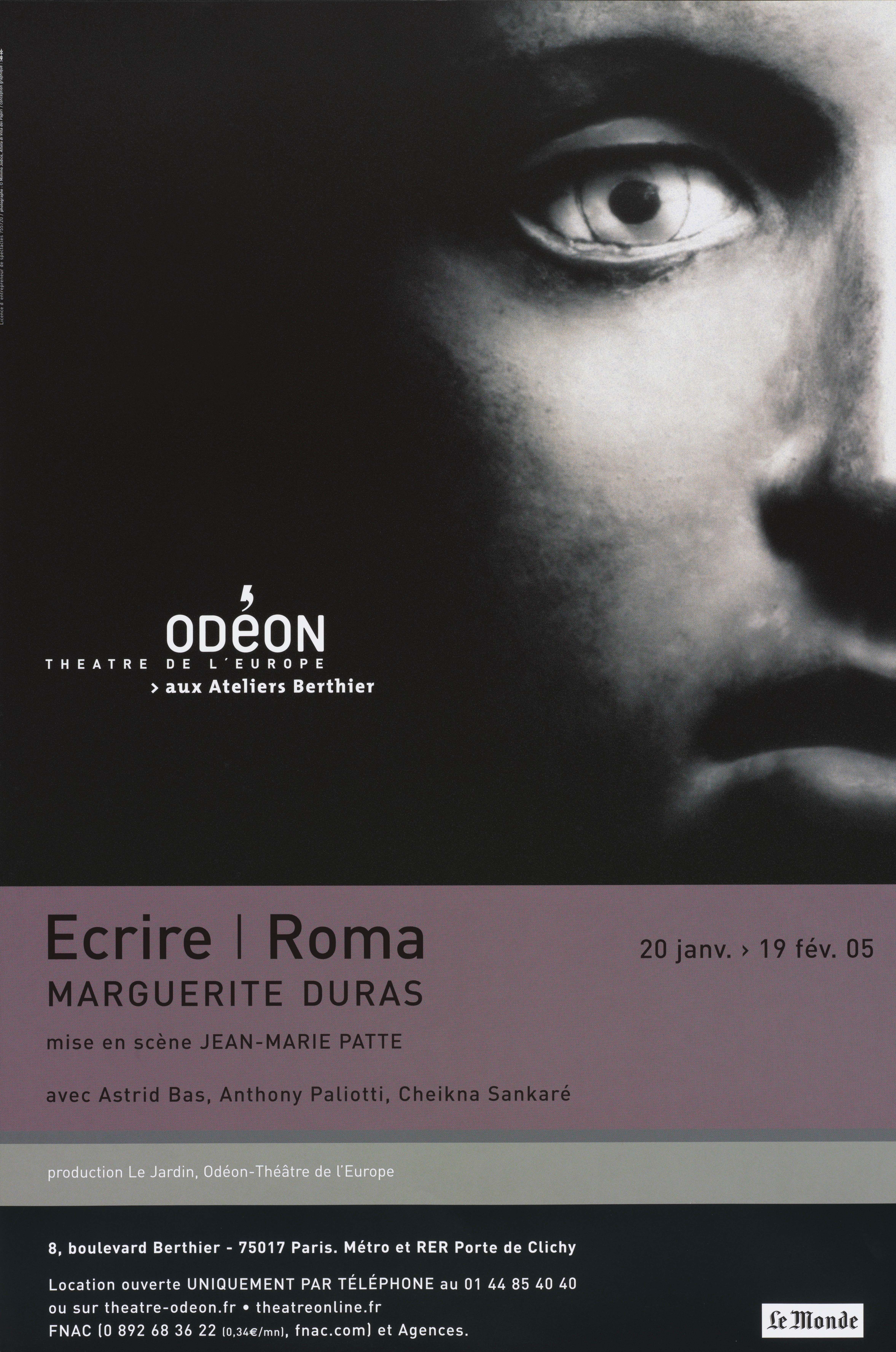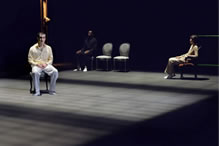In her quest of a free simplicity close to silence, Duras' writing and voice wandered widely from genre to genre. The same title in her work could make the trip from a film to a story, and sometimes into a theater play. And these genres maintained ever more ambiguous connections to our world as the borders between fiction, dream and reality became more nebulous, as if carried by this voice. This is what happened to Roma, which was first a medium-length film produced by RAI and then a short text with the same title. The writing is based on a film and links back to theater and history. A bit like the meeting of a couple one night in the lobby of the Piazza Navona hotel in Rome that arouses the fugitive ghosts of a distant imperial past. A strange sort of ricochet through which the present seems to rebound on the dream of a past that haunts it and in which it will get lost. Unless it's the past that returns to pay homage in the solitude of an almost anonymous present. As if autobiography, after having nourished the sources of fiction from the furthest distance of childhood, had finally met the moment when the writer herself was standing at the edge of her work in total nakedness. Writing and living thus become the two blurred names of the current passing through her.
One of Duras' last texts was called Writing. "Writing," she says, "is an attempt to know what one would write if one wrote; you only know it afterwards." At first Duras wanted to speak freely in front of Benoît Jacquot's camera. She speaks at her own rhythm about the house in Neauphle-le-Château where her most of her famous books were born. She speaks about the writer's work and his solitude and the slow agony of a fly, black on a white wall, which she watched attentively and intends to witness twenty years later. These words became a text which preserved the evocative quality, the half-uncertain, half-imperative tone, the explosiveness of the voice that spoke them.
Jean-Marie Patte knew this voice well. In order to recreate the discreet and gently seriousness of this voice, he gave the main inflections to three actors who will conjure on stage two of the places where this voice took refuge: the house in Neauphle and the lobby of a nameless hotel, not far from the Fontaine des Fleuves.
Cast
by MARGUERITE DURAS
directed by: JEAN-MARIE PATTE
scenography : Philippe Marioge
lighting : Marc Delamézière
costumes : Framboise Maréchal
make up: Odile Fourquin
with Astrid Bas, Anthony Paliotti, Cheikna Sankaré
production : Le Jardin, Odéon-Théâtre de l'Europe
,



